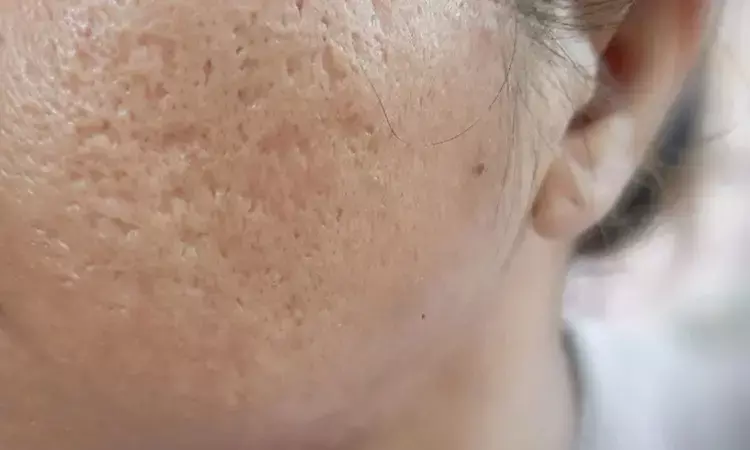- Home
- Medical news & Guidelines
- Anesthesiology
- Cardiology and CTVS
- Critical Care
- Dentistry
- Dermatology
- Diabetes and Endocrinology
- ENT
- Gastroenterology
- Medicine
- Nephrology
- Neurology
- Obstretics-Gynaecology
- Oncology
- Ophthalmology
- Orthopaedics
- Pediatrics-Neonatology
- Psychiatry
- Pulmonology
- Radiology
- Surgery
- Urology
- Laboratory Medicine
- Diet
- Nursing
- Paramedical
- Physiotherapy
- Health news
- Fact Check
- Bone Health Fact Check
- Brain Health Fact Check
- Cancer Related Fact Check
- Child Care Fact Check
- Dental and oral health fact check
- Diabetes and metabolic health fact check
- Diet and Nutrition Fact Check
- Eye and ENT Care Fact Check
- Fitness fact check
- Gut health fact check
- Heart health fact check
- Kidney health fact check
- Medical education fact check
- Men's health fact check
- Respiratory fact check
- Skin and hair care fact check
- Vaccine and Immunization fact check
- Women's health fact check
- AYUSH
- State News
- Andaman and Nicobar Islands
- Andhra Pradesh
- Arunachal Pradesh
- Assam
- Bihar
- Chandigarh
- Chattisgarh
- Dadra and Nagar Haveli
- Daman and Diu
- Delhi
- Goa
- Gujarat
- Haryana
- Himachal Pradesh
- Jammu & Kashmir
- Jharkhand
- Karnataka
- Kerala
- Ladakh
- Lakshadweep
- Madhya Pradesh
- Maharashtra
- Manipur
- Meghalaya
- Mizoram
- Nagaland
- Odisha
- Puducherry
- Punjab
- Rajasthan
- Sikkim
- Tamil Nadu
- Telangana
- Tripura
- Uttar Pradesh
- Uttrakhand
- West Bengal
- Medical Education
- Industry
Inhibiting mast cell function may help prevent scar formation in severe acne

Japan: A recent study has claimed that tranilast use to block mast cell function may help suppress post-acne scar formation.
The study, featured in The Journal of Clinical and Aesthetic Dermatology, discusses the significance of mast cell control in minimizing or preventing skin scarring in patients with severe acne. Yasuhiro Horiuchi, the Division of Dermatology at Tsuruse Orthopedic Clinic in Saitama, Japan, suggests that more attention be paid to the involvement and control of mast cells in developing scarring development in severe acne.
Tranilast is a daily medical agent that has been approved in Japan for more than 30 years, and the author believes that it can be safely and widely applied in conventional practice.
Post-acne scarring poses a major aesthetic problem in those with severe acne and can severely impact their quality of life. Previous studies have suggested that inhibiting mast cell function with tranilast can minimize or prevent scarring, the author wrote. Despite mast cells' involvement in the development of acne scars receiving little attention overall.
The cause of the common inflammatory skin disease is dead skin, clogged pores, bacteria, and oils that accumulate in pores and inflame them. Some might also have a genetic predisposition to acne. Several systemic or topical antibiotics exist for acne vulgaris treatment; still, it is not fully treatable.
Mast cells lead to allergic reactions via various biological processes and their derived mediators, including transforming growth factor (TGF)-β 1. According to the study, Tranilast,7 (N-[3,4-dimethoxycinnamoyl]-anthranilic acid), marketed earlier as an anti-allergic agent, inhibits mast cells' degranulation and can regulate mast cell-derived mediators. This boosts collagen synthesis in keloid fibroblasts in hypertrophic scar tissue and can regulate the remodelling stages of wound healing.
"Therefore, blocking mast cell function by tranilast can minimize or prevent scarring and be a satisfactory therapeutic strategy." the study stated.
The authors noted that adding tranilast and suppressing excessive activation of lesional fibroblasts can prevent scar formation in people with acne. The daily combined use of tranilast and antibiotics can treat severe acne and avoid the appearance of new scars. In contrast, a single treatment with oral and externally administered antibiotics causes atrophic scars.
"Thus, the combined use of tranilast with antibiotics will be evaluated for its usefulness as a daily treatment to suppress and minimize scar formation in severe acne cases," Dr Horiuchi wrote in the study.
"These results and those of previous studies that examined combined treatments indicate the importance of suppressing mast cell activation," the study concludes.
Reference:
Horiuchi Y. Importance of Mast Cell Activation Control for Preventing Scar Formation in Severe Acne. J Clin Aesthet Dermatol. 2023 Mar;16(3):30-31. PMID: 36950047; PMCID: PMC10027322.
Dr Kamal Kant Kohli-MBBS, DTCD- a chest specialist with more than 30 years of practice and a flair for writing clinical articles, Dr Kamal Kant Kohli joined Medical Dialogues as a Chief Editor of Medical News. Besides writing articles, as an editor, he proofreads and verifies all the medical content published on Medical Dialogues including those coming from journals, studies,medical conferences,guidelines etc. Email: drkohli@medicaldialogues.in. Contact no. 011-43720751


